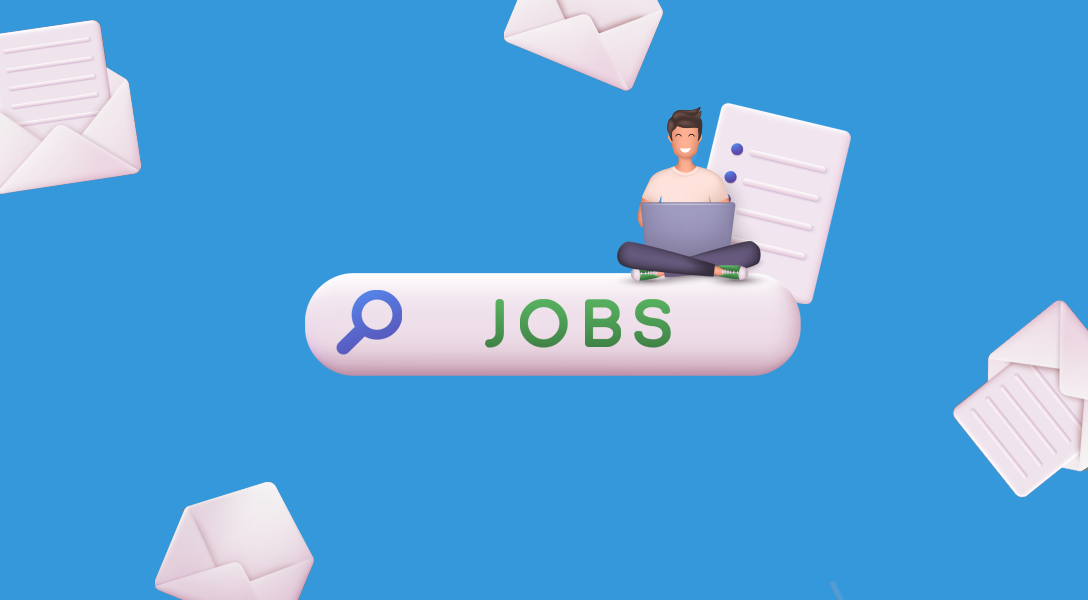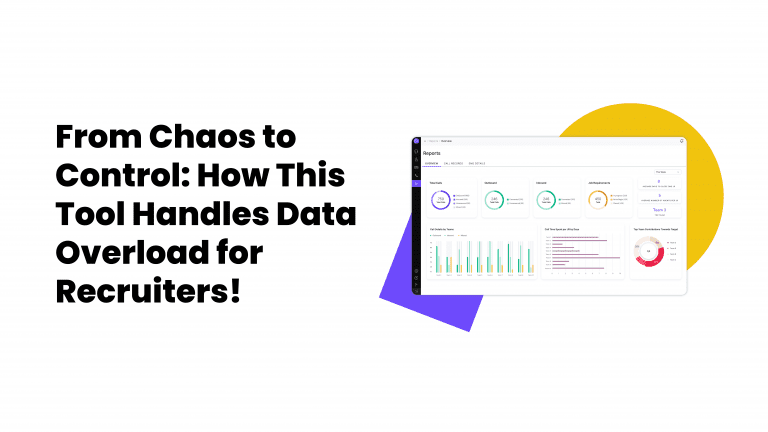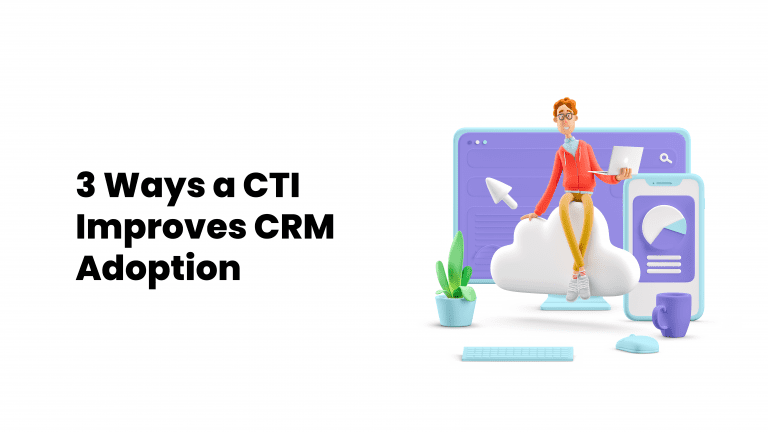As recruitment technology continues to progress, let’s take a look at the lessons learned in 2022 and how they will shape the trends of 2023. To gain insights on this ever-evolving field, we chatted with experts from CloudCall as well as other companies within the technology and staffing and recruitment industries to get their predictions for the upcoming year.
Technology is Streamlining the Hiring Process
Technology is revolutionizing the way companies recruit new talent. With the rise of applicant tracking systems, tools for automated scheduling and interviewing, and AI-enabled candidate sourcing solutions, recruiters have access to an unprecedented range of technology to streamline their hiring processes. This means that employers can quickly identify top candidates, assess them through predictive analytics, and select the right person for the job—all while saving time and money on recruitment activities. Modern technology gives recruiters a powerful toolkit to find quality talent faster than ever before. So don’t be afraid to embrace it! Utilize all the tech you can to make sure you hire the best people.
Klaas Ardinois is Chief Technology Officer at CloudCall. On lessons he learnt in 2022, he says:
“The most obvious lesson we learned in 2022, is that the office had a very different role in our lives. At the end of 2020 we thought the pandemic would pass and we would be happily back in our offices. However, it’s been proven that hybrid working is a sustainable way of working for many businesses.”
“For our team, we don’t really look at location as much when hiring new starters. It opens many doors for us and allows us to work with a wider range of talent.”
3 Recruitment Technologies to Watch Out For in 2023
As 2023 progresses, keep an eye out for exciting new recruitment technologies that are making the hiring process even faster and more efficient. AI-enabled candidate sourcing solutions allow recruiters to quickly scan through hundreds of resumes in seconds. All while predictive analytics can help employers identify the best candidates without having to do a full assessment. Automated scheduling and interviewing tools let recruiters make decisions faster than ever before. And cloud-based tracking systems make it easy to review applicants and track their progress throughout the recruitment process. With these technologies at your fingertips, you can be sure you’re hiring only top talent with minimal effort.
- Automation
- AI and AI-Enabled sourcing
- Data analytics
Let’s take a look in more detail:
Automation
Automation technologies are revolutionizing the recruitment and staffing industry. These tools allow recruiters to streamline tedious administrative tasks and free up more time for relationship building. Ensuring quality candidate engagement will enable recruiters to fill the vast amounts of vacancies there are right now.
Emma Buckingham, Product Manager at CloudCall had this to say
“As we enter this new year, the use of automation and AI is expected to skyrocket. It’s all anyone is talking about. Automation will not only provide recruiters with more time to contact potential candidates, but it will also help them source higher-quality hires in a fraction of the time that manually searching would require. This shift towards machine learning could revolutionize recruitment as we know it – making 2023 an exciting period for both employers and job seekers alike.”
Automated scheduling and interview systems let recruiters quickly assess candidates without having to manually review each application. AI-driven automated text analysis can rapidly scan through hundreds of resumes with minimal effort to identify top talent. Predictive analytics help employers make data-driven decisions about who they hire. With automation technology on your side, you can reduce time spent on repetitive menial tasks and ensure you’ve got the best person for the job in no time!
AI
The staffing and recruitment industry is set to benefit greatly from AI technology in the coming years. AI-enabled candidate sourcing systems can quickly identify top talent, streamlining time-consuming manual tasks so recruiters can focus on building relationships and making strategic decisions.
CloudCall’s product marketing manager, Sean Hopkins states that,
”AI tech in recruitment is becoming very important for businesses looking to increase the efficiency of the recruitment process. Whether that is applied in identifying talent, screening applicants, or streamlining interview setup, the potential for saving time is immense and allows recruiters to focus on developing the relationships that matter to be more successful.”
With technology like chatbots, companies can provide support for applicants 24/7. This allows them to quickly connect with potential candidates and keep them engaged throughout the recruitment process. Although Chatbots are considered a type of conversational AI, not all chatbots are conversational. Rule-based bots use keywords and other language identifiers to trigger pre-written responses and are not built on conversational AI technology. It’s exciting to think of the possibilities we can achieve with these developing conversational AI tools and where we will be at the latter end of 2023, into 2024.
AI technology has opened up a world of possibilities for recruiters, providing tools that will help them find the best candidates faster and make more informed hiring decisions.
Klaas says that
“In my view, while the technology has been around for a while it’s now starting to become prevalent and usable. It’s going to open doors in the next few years and lead to unexpected use cases. But it will have to go through a level of normalization so people become more attuned to the risks around bias, truthfulness of an answer, and generally settle in a world where it’s hopefully not “human vs AI” but rather evolve to a position where we can leverage AI to take care of tasks for us while we focus on supervising and interaction between humans.”
AI-Enabled Candidate Sourcing: What You Need to Know
AI-Enabled Candidate Sourcing is the process of using Artificial Intelligence (AI) to search through large databases of resumes and other candidate profiles in order to quickly identify top talent. It uses predictive analytics to scan through hundreds of resumes and analyze skills, experience levels, job titles, certifications and more. With this technology, recruiters can quickly identify potential candidates that match their company’s specifications without having to manually review each resume themselves. This streamlined approach to recruitment has made it easier for employers to find the best talent faster than ever before.
The possibilities are endless when it comes to leveraging AI technology in recruiting processes. And now is a great time to start exploring these options and taking advantage of its potential benefits. It’s an exciting future ahead!
Lisa Jones is the founder and director at Barclay Jones. They are award-winning leaders in recruiter training, recruitment technology strategy and automation. She believes that:
“The recruitment market has shifted, and many recruitment companies have needed to adapt their businesses, and their recruiters, to be better equipped to cope with new market conditions.
Automation is now focusing on de-administrating the recruitment process and re-humanising it, so recruiters have more time… but time for what???
Recruiters need to have time and morale-zapping admin removed, and their recruitment workflows boosted by automation. They need more time for the candidate, client, and crucially themselves. This means recruiter experience can be improved to allow for:
1. Stronger candidate and client relationships – hence stronger pipelines.
2. Improved workflows: job qualification, candidate screening, CV to interview ratios, combatting counter offers, and of course increasing placement speed and success”
Using Data Analytics to Make Recruitment Decisions
In the past, recruiters and hiring teams had to rely on chance and instinct more than data-driven insights. With a lack of analytical tools available in the market, it was difficult to measure how successful their recruitment strategies were. Luckily, nowadays anyone can easily create an objective recruiting process with access to powerful software and analytics tools. Data-driven recruiting allows you to make informed decisions based on tangible facts and statistics ranging from selecting candidates all the way through crafting effective hiring plans.
By collecting, analyzing and interpreting information from resumes, job applications and other sources, employers can gain valuable insights into potential candidates and make better-informed decisions about who to select. This helps ensure that the best possible candidate is put forward for the job, while ensuring a more efficient hiring process.
Data analytics can also be used to track metrics such as time-to-fill a position or number of applicants per job posting in order to find areas of improvement and refine recruitment processes over time. As data becomes increasingly important in the world of recruiting, leveraging data analytics will become an essential part of any successful recruitment strategy.
Josh Pines, VP International Alliances at Bullhorn says,
“Building a tech stack that improves the talent experience throughout the entire recruitment lifecycle is more important than ever. Keeping talent engaged helps agencies beat the competition without worrying about increasing job board and acquisition costs.”
Need help deciding on the ideal recruitment technology software for your business? Here are a few tips to guide you:
- Make a list of the features that are “must-have” and consider the “nice-to-have” ones.
- Choose software that seamlessly integrates with other tech you use.
- Only consider options that meet your business’s requirements to ensure you are getting the most out of your investment.
- Work out your budget but keep in mind that you will need software that can scale as your business does.
- Finally, test the software for usability and user-friendliness.
Emma Buckingham says,
“In 2023, we will be looking at making our CRM integrations as seamlessly integrated as possible. Ensuring that each and every user has the best possible experience using our product. We’re currently trialling and testing our transcription feature, which will sync conversations back into users CRMs, being an additional source of data for our customers to use. We’re going to make sure that everything we do is focused on making that journey as easy as possible for our customers.”
In 2023, staffing and recruitment businesses will need to re-evaluate their current strategies and technologies, to ensure they have the best tools available to fill roles. To find out how CloudCall can help your recruitment business achieve success this year, book a demo.




